

The challenge:
Cutting out or cutting down on refined sugar is not straightforward in the way that going dairy free or gluten free is. In that there’s a lot of alternative sweeteners available out there, some artificial, some natural, including quite a few that are not really much better for you than table sugar. It can be tricky choosing.
For example agave syrup, commonly used as sweetener in health bars and cakes, has a very low GI (Glycaemic Index)* rating – which is great, but on the downside, it’s highly processed and contains more fructose than refined sugar and as much as corn syrup. Fructose in significant quantities is also bad news for the body, potentially leading to insulin resistance, and other harmful effects.
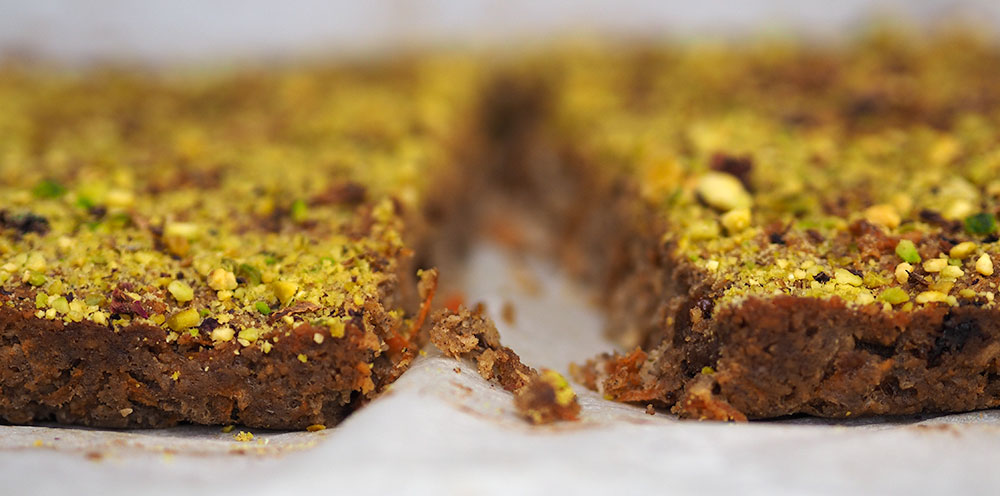
So what do you do?
My whole hearted recommendation is that you use the sweetener of your choice sparingly. You really don’t need much. We’ve become accustomed to eating cakes and desserts that are super sweet. Keep off these and your palate will change - rapidly. You will genuinely become satisfied with less.
A useful tip
You’ll see that many of the recipes I’ve shared here use, in addition to the sweetener, spices and flavourings as a way to enhance the impression of sweetness.
Find out more
There’s quite a bit of information available out there if you want to investigate more. Although some of it can be conflicting. I’ve included a link in the resources section to a good website which lists common sweetener products that are available.
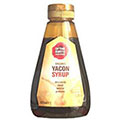
Yacon Syrup – is made from a Peruvian root vegetable. It contains sugars that are not absorbed by the body which makes it a good option in terms of its effect on blood glucose. However this also means it can cause some digestive discomfort in some people. It contains a lot of fiber which helps to give it its low GI rating. It has a beautiful caramel flavour. Mixed with a nut butter, it makes a gorgeous toffee gloop. It’s a good alternative where a syrup consistency is needed.
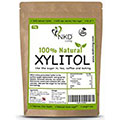
Xylitol – is a sugar alcohol, and is usually processed from the birch tree. It contains no fructose and has an insignificant effect on blood sugar and insulin. It has a slight minty aftertaste which can be counteracted effectively with warm spices or caramel flavourings. It can be ground to icing sugar consistency to spread the sweeteness evenly in toppings etc. It can cause some digestive upset. Please note its also very toxic to dogs and other pets.
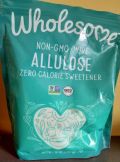
Allulose – has a molecular structure similar to fructose however the body isn’t able to metabolise it, which means the sugars have virtually no effect on the body. It is a little more versatile than similar granulated sweeteners such as xylitol and erythritol – inasmuch as you can heat it and caramelise it without it retaining a granular texture.
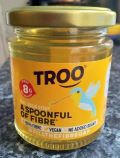
Inulin – comes mainly from chicory. It has no digestible carbs and so they pass through without being absorbed. It can cause flatulence and other digestive symptoms.

Erythritol – is a sugar alcohol. It’s a natural product found in some fruits and funghi. Its only partially absorbed and digested by the body and can cause digestive upset but not as much as other sugar alcohol sweeteners. It has a lower GI than xylitol. Although it comes granulated and you can grind it down further to icing sugar consistency to more evenly spread the sweetness.
A 2023 study found an association between high levels of erythritol and heart disease and stroke but further research needed to confirm.
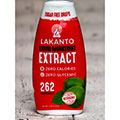
Monkfruit (Luo Han Guo) – is a natural zero calorie zero glycemic index sweetener. It comes from a plant that’s native to China. It is super sweet, (300 times more than refined sugar), so is best used in liquid form, where just a few drops can be added. Unlike many other very low/zero sugar options, it doesn't cause digestive upset.

Stevia – is probably one of the healthiest natural sweetener available. It doesn't raise blood sugar and has no calories or carbs. It comes in powder or liquid form. It is far sweeter than sugar. Which for me makes it difficult to use successfully. Use a little too much and its sweetness leaves a cloying aftertaste. I buy it in liquid form as its easier to limit the amount used than with a powder. I use it from time to time in combination with another sweetener, or fruit – using just a few drops.
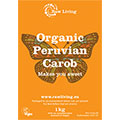
Peruvian carob – is a low glycaemic ingredient, not to be confused with the dark carob used as a chocolate substitute. This is a golden powder with a caramel flavour. It’s a great sweetener for biscuits and cheesecake bases.
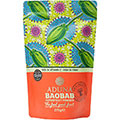
Baobob Fruit Powder – is high in vitamin C and good for the immune system. It has a fresh citrusy taste. It’s rich in fibre which slows down the rise in blood sugar.
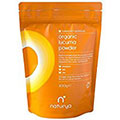
Lucuma – is a superfood made from a South American peach. It is a low glycaemic ingredient. It has a warm sweetness that make particularly good for things like nut bars and biscuits

Honey – varies a great deal in glycaemic index levels and fructose content between types of honey. Studies comparing honey to refined sugar show it has slightly less harmful effects on metabolism than refined sugar.
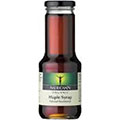
Maple Syrup – is made from maple tree sap and contains a number of minerals and anti-oxidants. It
contains marginally less sugar than refined sugar.

Dates – are a whole fruit and contain nutrients and fibre but they are still a significant source of fructose and glucose.
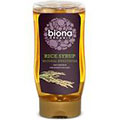
Rice Syrup – has an even higher glycaemic index than refined sugar and most other sweeteners.
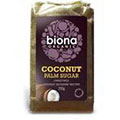
Coconut sugar – is lower on the glycaemic index than regular sugar but is high in fructose. It comes in granulated or syrup form. It has a warm caramel flavour.
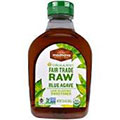
Agave - has a very low GI (Glycaemic Index) rating but it’s highly processed and contains more fructose than refined sugar and as much as corn syrup.
A cautionary note: As a diabetic I choose to avoid sweeteners such as the six listed above. I would only eat something with them in – if at all - as a rare treat. I’m not a nutritionist or a doctor, but if you have other reasons to want to avoid the harmful effects of refined sugar, I would still advise some caution and restraint with them.
Alternative sweeteners such as honey or dates are often cited as a healthy alternative to sugar to use in recipes, quantity for quantity. Whereas natural alternative sweeteners usually contain healthy nutrients – refined sugar has none - the harm from refined sugar comes not from its lack of nutrients but from the quantities of the sugars it contains, ie glucose and fructose - sugars that put a strain on the body if used in large and constant measure. Natural sweeteners in most cases contain these sugars too, some contain them in significant amounts. Better therefore, to get used to less sweetness in your sweet treats.